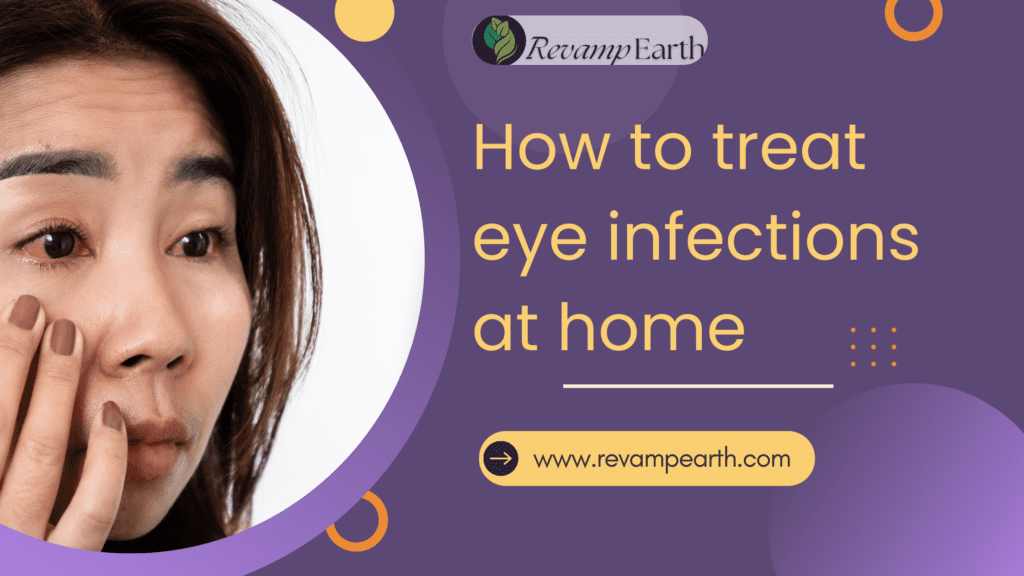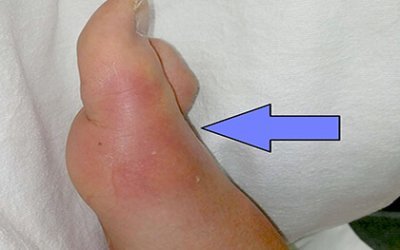How to treat eye infections at home

Eye infections can be uncomfortable and sometimes debilitating, but nature provides a variety of remedies that can help soothe and heal these issues without the use of synthetic drugs. In this article, we’ll explore natural ways to treat eye infections using herbs and home remedies.
1. Understanding Eye Infections
Types of Eye Infections
- Conjunctivitis (Pink Eye): Inflammation or infection of the transparent membrane that lines the eyelid and covers the white part of the eyeball.
- Blepharitis: Inflammation of the eyelids, often involving the part of the eyelid where the eyelashes grow.
- Styes: Painful lumps that form on the edge of the eyelid due to bacterial infection.
- Keratitis: Inflammation of the cornea, often caused by infection or injury.
Common Symptoms
- Redness
- Swelling
- Itching
- Discharge
2. The Power of Natural Remedies
Why Choose Natural Remedies?
- Fewer Side Effects: Natural remedies often have fewer side effects compared to synthetic drugs.
- Cost-Effective: Many natural treatments use common household items, making them affordable.
- Easily Accessible: Herbs and kitchen remedies are often readily available, even in urban settings.
3. Herbal Remedies for Eye Infections
Banyan leaves
- Grind together, one clove and the sticky juice of Banyan tree leaves into a very fine paste. Wrap in a clean muslin cloth. Squeeze the drops into the eyes.
- (Note 1. take the necessary hygiene precautions to prevent infection. This may irritate the eyes.)
Rose water: Instill several drops of pure rose water in the affected eye.
- Mix one teaspoon each of rose water and onion juice. Drench clean cotton in this liquid and place on the closed eyes.
Ashwagandha: The pure leaf juice can be used as eyedrops.
Chamomile Tea Compress
- How It Works: Chamomile has anti-inflammatory properties that help reduce swelling and irritation.
- How to Use: Brew a cup of chamomile tea, let it cool, and apply it to the eyes with a clean cloth. Leave it on for 10-15 minutes.
Green Tea Bags
- How It Works: Green tea contains antioxidants and anti-inflammatory properties that can help soothe eye infections.
- How to Use: Brew green tea, cool the tea bags, and place them over the eyes for 10-15 minutes.
Calendula Wash
- How It Works: Calendula has antiseptic and soothing properties that are effective against eye infections.
- How to Use: Make a tea from dried calendula flowers, let it cool, and use it as an eye wash twice daily.
4. Kitchen Remedies You Can Try
Honey and Warm Water
- How It Works: Honey has natural antibacterial properties that can help combat infections.
- How to Use: Mix a teaspoon of honey with a cup of warm water, and use an eyedropper to apply a few drops into the infected eye.
Turmeric Solution
- How It Works: Turmeric’s anti-inflammatory and antimicrobial benefits can help reduce infection and swelling.
- How to Use: Mix a teaspoon of turmeric powder with a cup of water, strain the solution, and use it as an eye wash.
Coconut Oil
- How It Works: Coconut oil has antimicrobial and moisturizing effects that can soothe irritation.
- How to Use: Apply a small amount of coconut oil around the eyelids, taking care not to get it into the eyes.
5. Lifestyle Tips for Healthy Eyes
Maintain Good Hygiene
- Tips: Regularly wash your hands and avoid touching your face to prevent the spread of bacteria to the eyes.
Balanced Diet
- Nutrients: Vitamins A, C, and E are crucial for eye health.
- Foods: Incorporate carrots, spinach, and citrus fruits into your diet for these essential nutrients.
Proper Rest and Hydration
- Tips: Ensure you get adequate sleep and drink plenty of water to keep your eyes hydrated and reduce the risk of infection.
6. Preventive Measures
Avoiding Triggers
- Allergens and Irritants: Pollen, dust, and smoke can irritate the eyes and lead to infections. Minimize exposure by staying indoors during high pollen seasons and avoiding smoky environments.
Regular Eye Check-ups
- Importance of Monitoring Eye Health: Regular visits to an eye specialist can help catch issues early and keep your eyes healthy.
7. When to Seek Professional Help
Signs You Need a Doctor
- Persistent or severe symptoms
- Vision changes
- Severe pain
If you experience any of these symptoms, it’s important to seek medical advice to prevent complications and ensure proper treatment.
Conclusion
Natural remedies can be an effective way to treat minor eye infections and maintain overall eye health. However, it’s crucial to recognize when professional medical advice is necessary. If you try these remedies and your symptoms persist or worsen, consult a healthcare provider.
For more detailed information on natural treatments and eye health, you can refer to these research articles:
- Chamomile’s anti-inflammatory effects
- Antioxidant properties of green tea
- Calendula’s therapeutic properties
Feel free to share your experiences with these remedies or ask any questions in the comments below. Your feedback is valuable in helping others explore natural ways to maintain eye health.
References
- H.K.Bakhru (1992) Herbs That Heal: Natural Remedies for Good Health. Orient Paperbacks. Delhi, India.
- T.V.Sairam (1999) Home Remedies Vol-II: A Handbook of Herbal Cures for Common Ailments. Penguin Books India.
Dos
Maintain Cleanliness
- Do wash your hands thoroughly before touching your eyes to prevent further infection.
- Do use clean and sterilized materials for any eye compresses or washes.
Use Natural Remedies Properly
- Do ensure that any natural remedies you use, such as chamomile tea or honey, are pure and uncontaminated.
- Do follow proper preparation and application methods for each remedy to avoid introducing additional bacteria.
Keep Your Environment Clean
- Do keep your bedding and towels clean to reduce the risk of spreading the infection.
- Do regularly clean your glasses and contact lenses according to proper hygiene practices.
Listen to Your Body
- Do take note of any changes in your symptoms and adjust your treatment accordingly.
- Do rest your eyes and avoid straining them by reducing screen time and bright lights.
Stay Hydrated
- Do drink plenty of water to keep your body hydrated, which helps in the healing process.
Don’ts
Avoid Touching or Rubbing Your Eyes
- Don’t touch or rub your eyes with unwashed hands as it can worsen the infection or spread it.
- Don’t share personal items like towels or cosmetics to prevent spreading the infection to others.
Don’t Ignore Severe Symptoms
- Don’t ignore symptoms like severe pain, vision changes, or persistent redness. Seek medical help if these occur.
- Don’t rely solely on natural remedies if your symptoms are severe or not improving.
Avoid Harmful Substances
- Don’t use untested or harsh substances like undiluted essential oils directly on your eyes.
- Don’t apply any substances that are not specifically recommended for eye use.
Don’t Use Expired Products
- Don’t use expired or old products like herbal teas or oils, as they can harbor bacteria and cause further infection.
Avoid Eye Makeup
- Don’t wear eye makeup until the infection has completely healed to prevent irritation and contamination.
Send Us A Message
FAQs
- When properly diluted with warm water, honey can be used as an eye drop due to its natural antibacterial properties. However, ensure the honey is pure and uncontaminated. Use with caution and consult a healthcare provider if unsure.
- You can use cooled green tea bags as a compress 2-3 times a day to help reduce inflammation and soothe the eyes.
- Seek medical attention if you experience severe pain, vision changes, persistent redness, or if your symptoms do not improve with natural remedies within a few days.
- It is generally not recommended to use essential oils directly on your eyes as they can be too harsh and cause irritation. Stick to gentler, proven remedies like chamomile, green tea, and honey.














